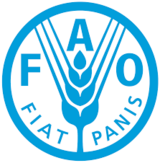External publications

Responsible governance of water tenure for achieving the 2030 Agenda: challenges in the Awash River Basin, Ethiopia
Srigiri, Srinivasa Reddy / Waltina Scheumann / Tena AlamirewExternal Publications (2024)
in: Hodgson, S./ Gillet, V./ Espinosa Flor, S./ Ramirez Fionda, S./ Kiersch, B./ Vallée, D (Hrsg.), Water tenure perspectives – Proceedings of the Water Tenure Mondays webinar series, Rome: Food and Agriculture Organization of the United Nations (FAO), 37-54
ISBN: 978-92-5-139252-2
DOI: https://doi.org/10.4060/cd2941en
Open access
The article, "Responsible governance of water tenure for achieving the 2030 Agenda: challenges in the Awash River Basin, Ethiopia," examines water governance within Ethiopia's Awash River Basin, a critical area due to its dense population, rapid urbanization, and economic significance. The authors highlight water as a pivotal resource in achieving multiple Sustainable Development Goals (SDGs), especially, no poverty (SDG1), zero hunger (SDG2), economic growth (SDG8) and securing ecosystems on land (SDG15). Water in the Awash Basin is shared among diverse users, including commercial farms, state projects, smallholder farmers, and pastoralists, leading to conflicts over access and allocation. The analysis reveals Ethiopia's attempt to establish a formal water tenure system based on permits, though this system faces significant obstacles due to limited enforcement, outdated infrastructure, and competition among users. The centrally planned agricultural growth led development policies prioritize larger users, increasing the insecurity of customary tenure rights of small farmers and pastoralists to land and water. They have limited legal recourse and receive little compensation for their lost rights. Despite formal recognition of communal land rights, the customary practices of pastoralist communities remain inadequately protected, affecting their livelihood sustainability. The study advocates a comprehensive approach to water tenure that incorporates both formal and customary rights, aligning governance with the "leave no one behind" principle of the 2030 Agenda. Emphasis is placed on balancing economic growth with social equity and environmental sustainability through inclusive governance that considers minimum flow requirements and supports smallholders and pastoral communities.
Contact
Cornelia Hornschild
Publication Coordinator
E-mail Cornelia.Hornschild@idos-research.de
Phone +49 (0)228 94927-135
Fax +49 (0)228 94927-130
Alexandra Fante
Librarian/ Open Access Coordinator
E-Mail Alexandra.Fante@idos-research.de
Telefon +49 (0)228 94927-321
Fax +49 (0)228 94927-130




![[Translate to English:] Photo: Alexandra Fante, Bibliothekarin/Open Access-Koordinatorin](/fileadmin/_processed_/f/0/csm__c_Deutsches-Institut-fuer-Entwicklungspolitik_Fante_94ce4fa1ba.jpg)